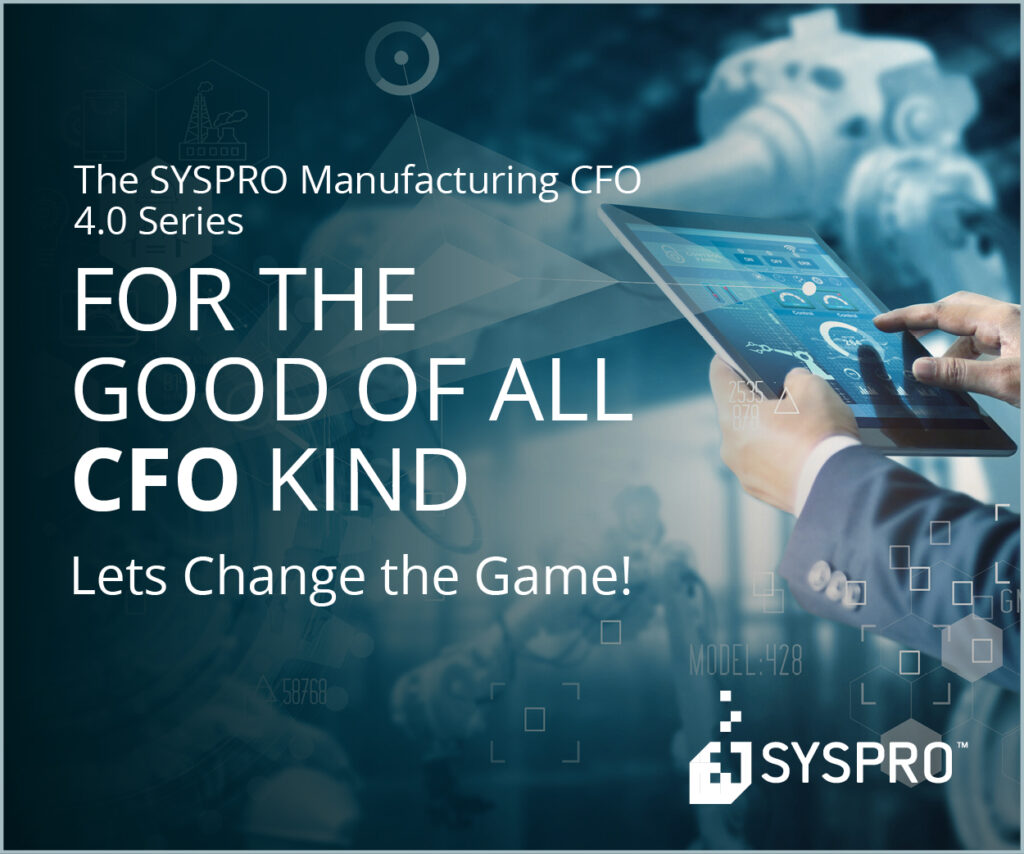Mark Wilson, chief executive at SYSPRO
The Covid-19 pandemic has brought about massive changes to the manufacturing industry, which has had to adapt to new operating models, an evolving consumer market, and disruptions in supply chain processes, all while keeping the workforce safe and healthy. Integral to the success of a business in overcoming these challenges is the chief financial officer (CFO), whose responsibilities include strategising on financially navigating these current complexities while ensuring a company is equipped for the fourth industrial revolution (4.0).
As lockdown restrictions ease and economies re-open, business activities are resuming, but not without consequences from the Covid-19 crisis. In a survey for the Syspro Manufacturing CFO 4.0 Series Campaign — which asked CFOs key questions about their current business situation and what their role is in the future — 47% of businesses have already recovered or expect to recover by the end of 2020. A further 30% are expected to recover by the end of the second quarter next year, with a fifth of companies only foreseeing recovery in the longer term.
Despite this business confidence, CFOs still are apprehensive about how world issues will affect the recovery of local industry. The impact of the global economic downturn is a major concern for 70% of CFOs in the report, with half worried about global supply chain distribution. To mitigate these risks and drive recovery, manufacturing businesses are now having to seek opportunities, such as finding new revenue streams (44%), or concentrating on the timing of investment decisions (41%), particularly in technology and the workforce.
Steps taken by manufacturing CFOs in the current climate
The pandemic has forced businesses to re-evaluate their systems and processes. For manufacturers, this meant finding ways to make products remotely with a limited and safeguarded workforce, while adjusting to disruptions in supply chain processes, and still trying to meet consumer demands. If businesses were not able to adapt quickly and with ease to the situation, they were placed at a competitive disadvantage, with serious financial implications.
To reduce costs and free up cash flow, 83% of respondents in the survey said they are now addressing areas in the business where they can save money, which may include reducing overheads, revising output for better margins, and decreasing inventory holdings. For 66% of CFOs, maintaining customer engagement is vital for cash flow, as is finding new streams of revenue.
Although manufacturing CFOs are watching margins and cutting costs, they are realising the importance of key investments that promise worthwhile, longer-term returns. This includes spending money on innovation and technology to ensure business operations are efficient and adaptable in an unexpected crisis. According to the survey, enterprise technology is now one of the key investments for over half of CFOs. This includes implementing business intelligence (BI) and enterprise resource planning (ERP) systems, which enable digitalisation to automate and integrate core processes to help with overall business performance management. Tied in with this is, 42% of the CFOs said they are allocating spend on automation.
Advancements in technology, the impact of remote working on operations, and cost-saving measures means that CFOs must take steps to support employees in a changing workspace. In the report, 71% of CFOs are focusing on restructuring, and investing in training of employees. This investment in people will continue in the long term, with almost three-quarters of the CFOs responding that they’re focusing on upskilling their employees in the next five years. A workforce that is prepared for change and can adapt to streamlined, time- and cost-saving processes with the aid of technology offers enormous potential to increase productivity and therefore revenue.
The role of CFOs in the future
While financial management is more important than ever for CFOs in the year ahead, with 70% listing maintaining margins and 68% managing cash flow as top priorities for 2021, their role in manufacturing is also to optimise processes for sustainable returns.
As industry gears up for 4.0, technology plays a significant role for CFOs, providing data-driven analysis and insights that support growth and strategy. The survey cites 45% of CFOs planning to utilise ERP next year and 40% wanting to improve visibility into performance and operations, where data analytics from BI can make this easier. Looking ahead, CFOs say they will continue to invest in BI, ERP, CRM, and warehouse automation solutions in the next five years, to assist in building a more efficient business model, where a trusted IT partner such as SYSPRO can advise on beneficial technology that’s suited to a company’s specific needs.
The transformation to a more digital future combined with global economic challenges means that CFOs must adapt their own skill sets if they are to keep abreast of new opportunities in the marketplace. No longer just a numbers game, 78% of CFOs believe that developing strategic business knowledge will ensure the business stays competitive in the 4.0 environment. In addition, the ability to build predictive models and having accurate insights into managing risks into opportunity — cited by 62% of respondents — will give CFOs a leading edge. Again, digital technologies in business, such as ERP and BI, are tools that can help CFOs achieve these attributes.
CFOs remain confident that businesses will recover from the fall-out of the Covid-19 crisis, but this will not be without its challenges, especially in entering a new technological era of industry. Strategic shifts in investments in the company, including accelerating digitisation and upskilling a flexible workforce can help to ensure success in the near future and beyond.
SYSPRO has more than 15 000 licensed companies in over 60 countries across six continents. For more information, visit https://za.syspro.com/
— Mark Wilson is Chief Executive at SYSPRO EMEA&I
